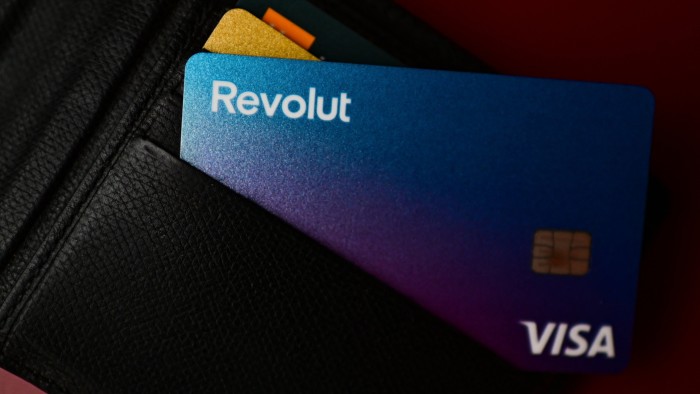Unlock the Editor’s Digest for free
Roula Khalaf, Editor of the FT, selects her favourite stories in this weekly newsletter.
Revolut has yet to receive the green light from UK financial regulators to provide consumer credit services to its 11mn customers in Britain, marking the latest hurdle for the $45bn fintech to become a full-service UK bank.
The group is still awaiting authorisation from the Bank of England’s Prudential Regulation Authority and the Financial Conduct Authority after applying for a consumer credit licence last year, which would enable it to offer credit cards and other services in the UK, according to people familiar with the matter.
The consumer credit licence is separate from Revolut’s UK banking licence, which it secured last year from the PRA with restrictions. However, the restrictions limit the deposits Revolut’s banking unit is allowed to accept to a tiny £50,000 total.
The credit application highlights that Revolut is still awaiting several regulatory permissions to become a fully fledged lender in the UK.
The company already offers consumer credit services in several EU markets, including credit cards and the ability for customers to pay in instalments in Ireland, Poland and Lithuania. It plans to launch similar services in the UK, but has accepted this is likely to be delayed until after it receives its full banking licence.
Some elements of the consumer credit licence would be useful for other products, such as credit scoring, which Revolut is using to offer quick approvals on mortgages in Lithuania, with plans to expand this service into Ireland soon. Revolut already has a pan-EU banking licence from authorities in Lithuania.
The fintech secured a UK banking licence with restrictions last July following a protracted — and sometimes fraught — three-year process with regulators, delivering a boost to the group’s expansion plans in its home market.
The restrictions — in place as long as Revolut remains in the PRA’s so-called mobilisation stage — mean that in addition to the £50,000 total deposit limit insured by the UK’s guarantee scheme, the fintech cannot extend loans to customers. It needs to meet certain requirements to exit mobilisation and operate as a bank.
The PRA says that the mobilisation period “cannot continue indefinitely and should take no longer than 12 months”. But it accepts “there may be some circumstances that are beyond a new bank’s control” in its ability to meet the deadline.
Revolut declined to say if it would exit mobilisation by the 12-month deadline on July 25, with one person familiar with the process saying that it was “not a statutory limit”. Executives believe Revolut’s banking licence was always likely to take longer than usual given the company’s greater size compared to a typical applicant.
In its latest annual report, the group said that its aim was to exit mobilisation “during 2025”.
Revolut said: “Our ambition has always been to make Revolut the bank of choice for UK customers, offering products and services that improve their financial lives, including consumer credit.
“As part of this ambition, our UK bank has applied for a consumer credit licence. We’re continuing to work closely with UK regulators as we build towards launching our UK bank, and look forward to introducing new products to our UK customers once that process is complete.”
The FCA and PRA declined to comment.



